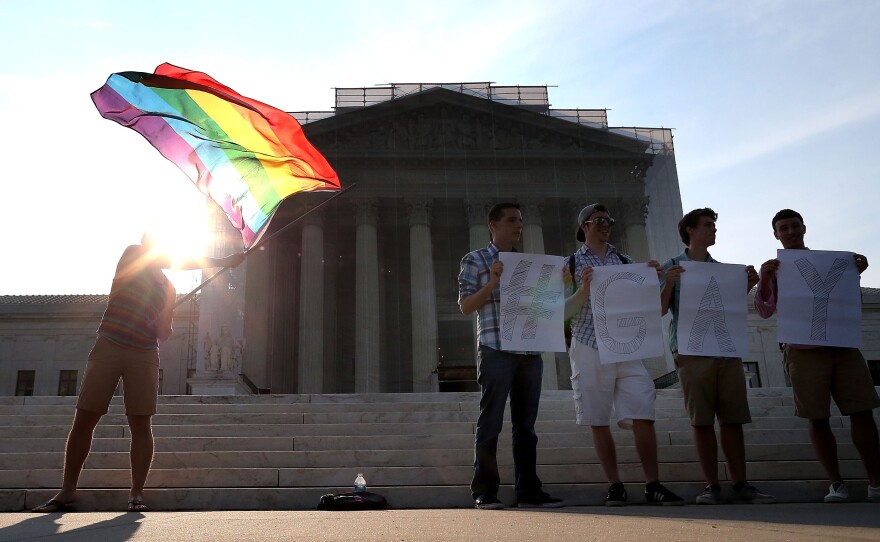The Supreme Court rulings are out but what do they mean exactly? KPBS Morning Edition's Deb Welsh spoke with Thomas Jefferson School of Law professor Julie Greenberg about Wednesday's historic decisions.
Q: Would you break down the ruling on Prop 8 for us?

"The majority of the court decided to dismiss the case because it said that the Prop 8 proponents didn't have standing. So they said the U.S. Supreme Court doesn't have the power to hear the case and the 9th Circuit didn't have the power to hear the case therefore we go back to the trial court Judge Walker's district court ruling."
Q: Where does that leave us?
"Judge Walker ruled that Prop 8 did violate the U.S. Constitution and he ordered an injunction against the enforcement of Prop 8. So although there is some argument about it, most people believe in a very short time Prop 8 will no longer be enforced, which means that state officials will start issuing marriage licenses again to same-sex couples."
Q: So that is in essence good news for same-sex couples in California?
"Yes, that's very good news for same-sex couples in California"
Q: Now on to Defense Of Marriage Act. That ruling affects same-sex couples in the state, doesn't it?
"In the 12 states that recognize same-sex marriage those couples have had their rights under state law, but until today, they had no rights under federal law to have their marriages recognized. With the Supreme Court holding DOMA unconstitutional, now those same-sex couples will have their rights recognized both by their state government and by the federal government."
Q: This has to do with the like of federal benefits, right?
"Yes, there are over 1,000 federal not just benefits but burdens as well that yes spouses are obligated to each other so that means the most comment ones filing joint tax returns the rights to social security benefits to health care benefits, quite a few rights and responsibilities go with federal benefits."
Q: What about Congress' role in this, can they overturn it?
"Not really, because congress passed DOMA and the U.S. Supreme Court is basically telling Congress, "You passed an unconstitutional law."
Q: What do you expect the response to anti gay groups to be?
"I haven't seen any indication as of this morning yet, but a lot of anti-gay groups were saying they are going to challenge whether same-sex marriages could start in California — their argument being that if the Prop 8 proponents didn't have standing in any court then Judge Walker's ruling should be invalid. But that argument is not a very strong argument, but there is a significant possibility that we will have additional court challenges, that they will argue Judge Walker's ruling is invalid as well, but I don't think that will be successful."
Q: So they don't have a legal leg to stand on?
"Well, there is a legal argument there but I don't think it will be a successful legal argument. I do think marriages will start again in California fairly quickly."
Q: The 9th U.S. Circuit Court Of Appeals has to lift the stay does it not?
"They do have to lift the stay but that's something that the 9th Circuit could do very easily so the 9th Circuit said we're not going to allow marriages to occur until the Supreme Court resolves the issue but now the supreme court has resolved the issue so the 9th Circuit will life its stay."





